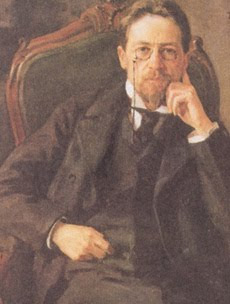'The man who does not read good books has no advantage over the man who cannot read them'
Mark Twain
Mark Twain
Friday, 29 January 2010
On this day...
Russian author Anton Chekhov was born in 1860. The son of an abusive father, who is said to have formed many of his ideas on hypocrisy, Chekhov used simply the word 'suffering' to describe his childhood. When the family was declared bankrupt, they fled to Moscow, leaving the young Anton behind to sell their possessions. During this time, Chekhov began to write and upon moving to Moscow to attend the medical university, he utilised this talent to provide for his family. Writing under various pseudonyms, including 'man without a spleen', he contributed copious numbers of articles to prestigious city-based newspapers and periodicals; a period that culminated in him winning the Pushkin Prize, under the tutelage of Dmitry Grigorovich. Despite now suffering from tuberculosis, Chekhov encountered prolific literary form and went on to produce works now recognised in Russia's golden age of literature. 'Uncle Vanya', 'The Seagull' and 'The Cherry Orchard' are just three of Chekhov's best known works; works that acquired him the adulation of writers such as Joyce, Woolf, Hemingway, and most notably, George Bernard Shaw.
Subscribe to:
Post Comments (Atom)

No comments:
Post a Comment